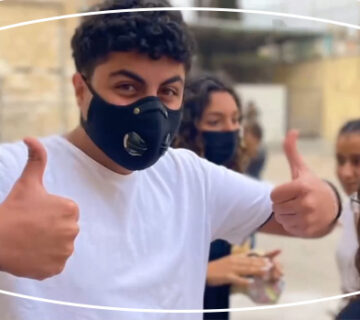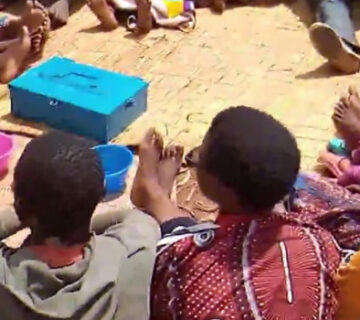 «I’m a doctor and I work in a state hospital. One day the police brought us a man with two bullets in his leg. This was the type of patient that no one in the clinic wants to deal with: a thief caught in the act.
«I’m a doctor and I work in a state hospital. One day the police brought us a man with two bullets in his leg. This was the type of patient that no one in the clinic wants to deal with: a thief caught in the act.
He had been seriously wounded during a clash with the police who had brought him to us.
He was motionless on the bed with no one to assist him; not even his relatives showed up, according to the custom when a person has been thieving.
In most hospitals in Africa it’s the job of the relatives to bring food for the patients, to bathe and dress them, to help them with their daily material needs. In the absence of relatives the patient is totally abandoned. The medical staff is only obliged to provide medical care.
Moreover, the other patients and the medical personnel were not very happy to have this evildoer around. And so he was finding it diffult to find something to eat and, confined immobile on his bed, the smell around him soon became unbreable.
I complained to the Commissioner of Police that they had dumped such a person on us without anyone to help him. “That’s the job of the medical personnel!” was his rude reply. It came to my mind that in other countries caring for the patient does involve the healthcare staff. I explained to my colleagues that perhaps we should take an interest in this patient, but was unable to convince them.
I tried to make the other patients aware that they needed to accept this patient, though I wasn’t very successfully to tell the truth.
At one point I asked myself: “I would exhort others? And myself?” What am I doing for him? Yes, I prescribe medications for him to take. I give him a place on the ward. But this is only what I’m obliged to do. Now I have to do what I would ask others to do, to go beyond the minimum requirement.”
 I removed him from his bed and bathed him. “Oh! I haven’t bathed in two months!” he joyfully exclaimed. “How good to feel the rays of the sun on my skin!” Then I paid one of the hospital workers to wash the patient’s clothes. Together with another colleague we changed his mattrass, since the one he had been using was in horrible condition. Finally, I left a bit of money for the patient himself, in case he was needing something.
I removed him from his bed and bathed him. “Oh! I haven’t bathed in two months!” he joyfully exclaimed. “How good to feel the rays of the sun on my skin!” Then I paid one of the hospital workers to wash the patient’s clothes. Together with another colleague we changed his mattrass, since the one he had been using was in horrible condition. Finally, I left a bit of money for the patient himself, in case he was needing something.
This gesture of mine bore fruit. The workers, for example, began to take away the rubbish from his bedside. It raised compassion in the other patients also, who now share their food with him.
After a while he was able to leave the hospital. He was cheerful and in high spirits. He told me that he was going to give up thieving. He even followed my advice to go first to the police in order to accept the judgement of the court. He felt that he wanted to accept responsibility for his actions.”
Dr. H.L. (Burundi)


 Italiano
Italiano Español
Español Français
Français Português
Português



Faça aos outros o que queres que façam a voce… é a regra de ouro!!